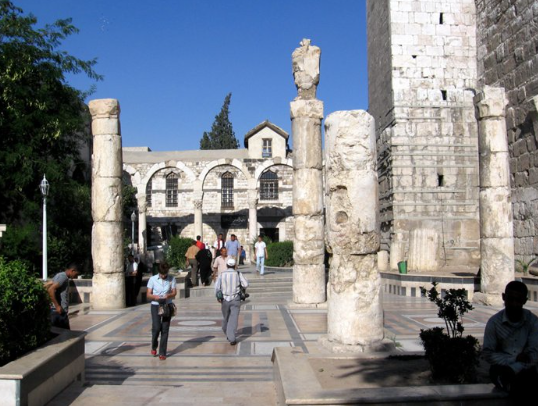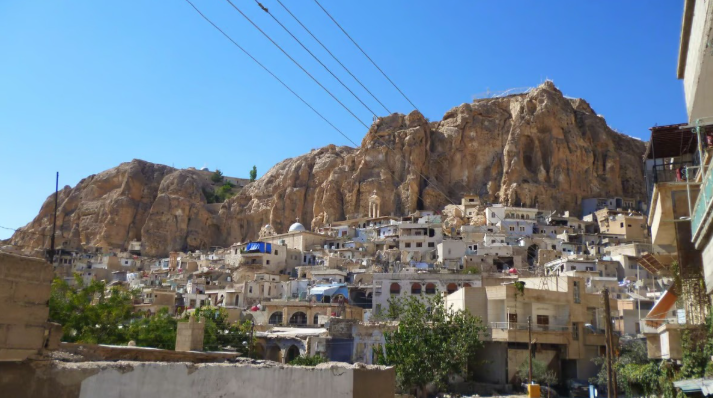
The Temple of Jupiter Yabrud,
The Temple of Jupiter Yabrud, located in the heart of the city at an altitude of 1,550 metres, is considered one of the largest Roman temples in the Levant. Built

The Temple of Jupiter Yabrud, located in the heart of the city at an altitude of 1,550 metres, is considered one of the largest Roman temples in the Levant. Built

The Basilica of Saint Nicholas is a prime example of the transformation of sacred sites in Qalamoun. Dating back to the 6th century AD, the Byzantine building was converted into

The carved section of the Roman road west of the Wadi Barada market stands out as an engineering masterpiece dating back to the middle of the second century AD, when

The slopes of Maaloula are lined with tightly clustered houses carved into limestone, reflecting human adaptation to harsh terrain and the continued use of the Aramaic language. The construction system

The Church of Serkis and Bacchus has stood in the heart of Qara since the Byzantine era, preserving rare frescoes that depict the two martyred soldiers. Inside, a single rectangular

Jandal Castle rises atop one of Mount Hermon’s shoulders, rebuilt in 1015 CE by Emir Jandal ibn Qays as an early Druze stronghold guarding the mountain routes leading to Wadi

Perched on a verdant slope above the Barada Valley, the Shrine of Prophet Abel shimmers beneath its green dome, welcoming a remarkable array of Muslim and Christian visitors alike. The

Jabal Seis is considered one of the most enchanting sites in the Syrian desert: an Umayyad fortress built between 707 and 715 CE within the crater of an extinct volcano,

The village of Harran al-Awamid takes its name from three basalt columns that have stood defiantly in the plains of Eastern Ghouta since Roman times. These columns once formed the

Abila Lysanius represents a missing link in the Roman road network connecting Damascus and Baalbek. Today, visitors pass through a striking rocky passage carved in the second century CE, elevated

جميع الحقوق محفوظة لصالح JCI Aleppo
All rights reversed to JCI Aleppo